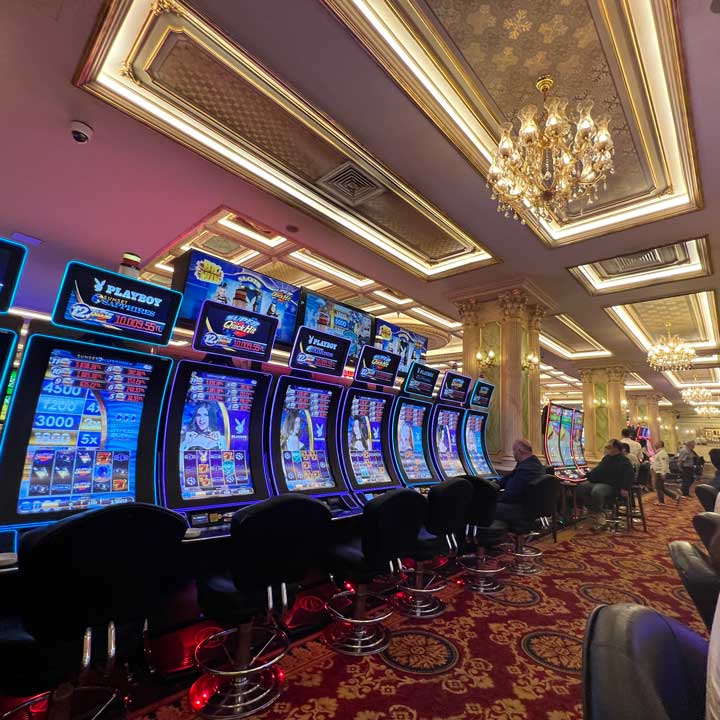
Gambling has been an important part of human entertainment for millions of years, evolving through societies and eras to become the dynamic casino games we know today. From the ancient Chinese and Romans, who participated in various forms of gambling and chance, to the sophisticated gaming floors of contemporary casinos, the allure of risk and reward has captivated individuals across the globe. The change from basic dice games and rudimentary betting setups to the lavish settings of modern casinos reflects significant strides in both cultural standards and technological.
As societies evolved, so too did the complexity of gambling activities, with gambling activities emerging as a distinct category of entertainment and thrills. These activities have transformed from informal gatherings centered around traditional tables to sprawling, opulent establishments designed to lure players. Today, we explore this captivating journey, examining how historical practices laid the groundwork for the varied and thrilling casino activities that bring joy to millions worldwide.
spintax
Historical Wagering Traditions
Gambling has profound roots in human past, with proof of activities of chance dating back to ancient civilizations. Archaeologists have found that as far back as 3000 BC, the people of China were using rudimentary forms of gambling with dice made from wood. Similarly, ancient cultures of Mesopotamia engaged in betting activities, often relying on the tossing of lots or dice to determine outcomes. These early forms of betting served not only as recreation but also played crucial roles in social and cultural practices.
The people of Egypt also took part in betting activities, with games that included betting on the outcomes of various occurrences, including sports and religious festivals. Items such as dice and depictions of players from ancient tombs demonstrate that gambling was a frequent pastime. It provided both relaxation and a means of engaging in social interaction, often linked to celebratory occasions or important gatherings. This behavior demonstrated the universal appeal of chance and rivalry throughout the ages.
In ancient Rome, wagering became a commonplace practice among the citizens, as evidenced by references in literature and the establishment of guidelines around certain activities. ye7 Romans enjoyed a variety of betting activities, from betting on chariot races to playing games similar to modern-day board games. The legal system surrounding these activities began to take shape, establishing the foundations for betting regulations that would evolve in the centuries to come. The popularity of betting during this period set the stage for the development of casino games in the future.
The Development of Casino Games
Casino games have experienced notable transformations from their origins to the modern-day entertainment options. In historical civilizations, gaming was commonly associated to ceremonial practices, with games of dice found in Mesopotamia and betting on the outcomes of events in classical Rome. These primitive forms of gambling laid the basis for the formal games we see today. The shift from informal gambling to regulated games happened as societies began creating rules and venues for wagering, reflecting cultural values and practices.
The medieval period saw the development of card games, which gained fame among the nobility of Europe nobility. Games like the first and the game baccarat became mainstays in social gatherings. The invention of printing technology also aided the spread of playing cards, making them more accessible to the masses. As gambling houses began to increase, these card games developed into different forms that appealed to wider audiences, eventually leading to the establishment of casinos as dedicated venues for gaming.
The twentieth century marked a pivotal point in the evolution of casino games, with the ascendancy of commercial casinos in Las Vegas and other gambling hotspots. This era brought forth games like video slots and modern adaptations of table games, complete with sophisticated graphics and detailed betting structures. The advent of online casinos in the 1990s also transformed the gaming industry, allowing players to access a great variety of casino games from the safety of their homes. Today, gambling games persist to progress, blending traditional elements with advanced technology to create immersive experiences for players worldwide.
Modern Gambling Laws
In recent years, the landscape of gambling laws has changed substantially, particularly as tech advances and online gambling have become ever prevalent. Governments around the world have implemented numerous regulations and standards to ensure that gaming activities are conducted fairly, with responsibility, and transparently. These regulations often encompass factors such as permits, marketing, gambler protection, and sensible gaming measures. Authorities aim to mitigate problems such as gambling addiction and cheating while fostering a fair gambling environment.
The growth of internet casinos has necessitated a new approach to oversight. Many jurisdictions have established dedicated online gaming structures that serve internet-based gaming, allowing operators to offer their services within the law. These structures often require operators to get licenses, adhere to strict security protocols, and provide assistance options to assist players. By vigilantly supervising online activities, authorities can more effectively protect consumers from potential harm and make sure that gaming is carried out in a protected manner.
Additionally, modern gaming laws are increasingly focusing on responsible gambling initiatives. Many gaming establishments and online sites now adopt features such as player exclusion, deposit limits, and time-outs to help players manage their gambling habits. Awareness campaigns aimed at raising awareness about the dangers of gaming are also frequent. As the industry continues to expand, the emphasis on sensible gaming continues to be a cornerstone of regulatory efforts, reflecting a dedication to encouraging a safe and enjoyable gambling experience for all players.